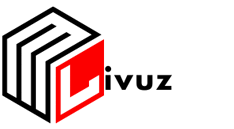Homeowners Insurance: Protecting Your Property the Smart Way
Owning a home is one of life’s most rewarding achievements. It provides not only shelter but also security, comfort, and a foundation for family memories. However, with homeownership comes responsibility and one of the most important responsibilities is safeguarding your property against unexpected risks. Homeowners insurance plays a crucial role in this protection.This article will take you through everything you need to know about homeowners insurance: what it is, why it matters, what it covers, how to choose the right policy, and smart ways to maximize protection without overspending.
1. What Is Homeowners Insurance?
Homeowners insurance is a type of property insurance designed to cover private residences. It protects you financially in case of unexpected damage, theft, accidents, or liability issues. A standard policy typically includes coverage for your house itself, other structures on the property, personal belongings, and liability protection in case someone is injured on your property.In short, homeowners insurance ensures that a single incident, like a fire, storm, or burglary, won’t wipe out your financial security.
2. Why Homeowners Insurance Is Essential
Some new homeowners may wonder if insurance is truly necessary. The answer is simple: yes. Here’s why:
-
Financial protection – Repairing or rebuilding a home after major damage can cost tens or even hundreds of thousands of dollars. Insurance helps cover these expenses.
-
Lender requirement – If you have a mortgage, your lender will almost always require you to carry homeowners insurance.
-
Liability safety – Accidents happen. If someone slips on your icy driveway, you could be held liable. Insurance covers legal and medical costs.
-
Peace of mind – Knowing that you’re covered against unpredictable disasters provides security and reduces stress.
3. What Does Homeowners Insurance Cover?
Coverage can vary depending on the policy and provider, but most standard policies include the following:
a) Dwelling Coverage
This protects the structure of your home — walls, roof, floors, and built-in appliances — from covered perils like fire, windstorms, and vandalism.
b) Other Structures Coverage
Covers detached structures on your property, such as garages, sheds, and fences.
c) Personal Property Coverage
Protects your belongings (furniture, electronics, clothing, etc.) from theft or damage, even if they are outside your home.
d) Liability Protection
Covers legal fees and damages if you’re found responsible for injuries or property damage to others.
e) Additional Living Expenses (ALE)
If your home becomes uninhabitable after a covered loss, ALE pays for hotel stays, meals, and other living costs.
4. What Is Typically Not Covered?
It’s important to know the exclusions so you can plan ahead. Standard homeowners insurance usually does not cover:
-
Flood damage (requires separate flood insurance)
-
Earthquake damage (requires separate coverage)
-
Wear and tear or poor maintenance
-
High-value items (jewelry, art, collectibles) beyond policy limits
5. Factors That Influence Homeowners Insurance Premiums
Your premium — the amount you pay for coverage — depends on several factors:
-
Location – Homes in disaster-prone areas (hurricanes, floods, wildfires) often cost more to insure.
-
Home value and size – Larger and more expensive homes require more coverage.
-
Construction materials – Brick homes may cost less to insure than wooden homes, which are more flammable.
-
Claims history – If you’ve filed multiple claims in the past, insurers may view you as a higher risk.
-
Credit score – In many states, a higher credit score can help reduce your premium.

6. Tips for Choosing the Right Homeowners Insurance
With so many providers and policies available, choosing the right coverage can feel overwhelming. Here are some tips to simplify the process:
-
Compare multiple quotes – Don’t settle for the first offer; shop around.
-
Check coverage limits – Make sure the dwelling coverage equals the cost to rebuild your home, not just its market value.
-
Understand deductibles – Higher deductibles mean lower premiums but more out-of-pocket costs if you file a claim.
-
Bundle policies – Combining your home and auto insurance with one provider can save money.
-
Ask about discounts – You may qualify for savings if you have smoke detectors, security systems, or a claims-free history.
7. Smart Ways to Protect Your Property Beyond Insurance
While homeowners insurance is critical, prevention is equally important. Here are smart steps you can take to safeguard your property:
-
Install smoke and carbon monoxide detectors.
-
Secure doors and windows with modern locks.
-
Use a security camera system.
-
Trim trees and clear debris to reduce fire and storm risks.
-
Perform regular maintenance (roof, plumbing, electrical systems).

8. The Future of Homeowners Insurance
Technology is changing the insurance industry. Smart home devices now allow insurers to offer discounts for homes equipped with water leak detectors, fire alarms, or automated security systems. In addition, climate change is reshaping how insurers calculate risk, especially in flood-prone and wildfire-prone regions.Homeowners in the future may see more customized, usage-based policies that reflect their unique risk profile and property features.
9. Common Myths About Homeowners Insurance
-
“My policy covers everything.” – No policy covers every risk; check exclusions carefully.
-
“Market value = coverage amount.” – Coverage should equal rebuilding cost, not resale value.
-
“Flooding is included.” – Flood insurance is almost always a separate policy.
-
“Renters don’t need insurance.” – Even renters need insurance to protect personal property and liability.
Conclusion
Your home is more than just a building it’s your safe haven, your family’s gathering place, and likely your largest investment. Homeowners insurance is the smart, responsible way to protect that investment. By understanding what your policy covers, knowing what risks you face, and taking proactive steps to secure your property, you’ll enjoy peace of mind and financial security no matter what challenges life brings.
Frequently Asked Questions (FAQ)
Q1. What does a standard homeowners insurance policy cover?
A standard policy typically covers the structure of your home, personal belongings, liability protection, and additional living expenses if your home becomes uninhabitable due to a covered event.
Q2. How much homeowners insurance do I need?
It’s best to have enough coverage to rebuild your home at current construction costs and replace your belongings. Your insurance agent can help calculate the right coverage.
Q3. Are high-value items like jewelry and art covered?
Yes, but usually with limits. To fully protect expensive valuables, you may need to add special riders or endorsements.
Q4. What factors affect my homeowners insurance premium?
Your location, home’s age and condition, claim history, credit score, and even proximity to fire stations or coastlines can all impact your premium.
Q5. Does homeowners insurance cover home businesses?
Standard policies offer limited coverage for business property. If you run a business from home, you may need additional business insurance.
Q6. What isn’t covered under standard homeowners insurance?
Floods, earthquakes, pest damage, routine wear and tear, and intentional acts are generally excluded.
Q7. Can I lower my homeowners insurance costs?
Yes. You can reduce premiums by increasing your deductible, bundling with auto insurance, installing security systems, or improving your home’s disaster resistance.
Q8. What should I do if I need to file a claim?
Document the damage with photos/videos, contact your insurance provider immediately, provide receipts or proof of ownership for lost items, and follow up on the claim process.




